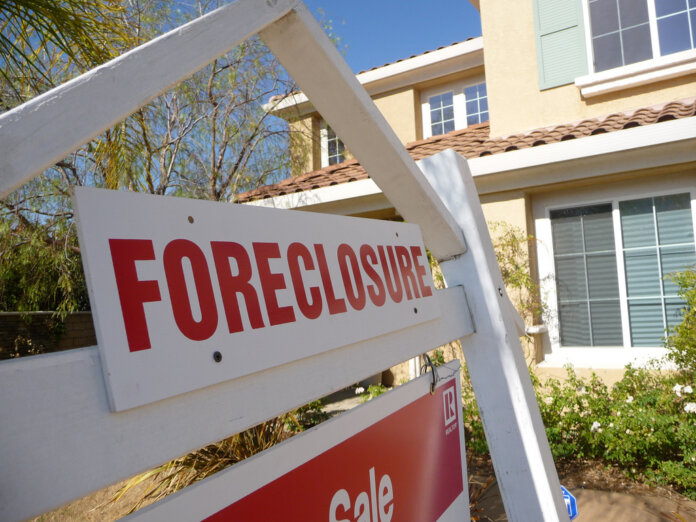ATTOM’s 2022 U.S. Foreclosure Market Report shows there were a total of 34,501 U.S. properties with foreclosure filings (default notices, scheduled auctions or bank repossessions), up 14% from a month ago and up 118% from a year ago.
Lenders started the foreclosure process on 23,952 U.S. properties in August 2022, up 12% from last month and up 187% from a year ago.
“Two years after the onset of the COVID-19 pandemic, and after massive government intervention and mortgage industry efforts to prevent defaults, foreclosure starts have almost returned to 2019 levels,” says Rick Sharga, executive vice president of market intelligence at ATTOM. “August foreclosure starts were at 86 percent of the number of foreclosure starts in August 2019, but it’s important to remember that even then, foreclosure activity was relatively low compared to historical averages.”
States that had at least 100 foreclosure starts in August 2022 and saw the greatest monthly increases in foreclosure starts included: Oklahoma (up 80%), Tennessee (up 74%), Virginia (up 64%), Arkansas (up 53%) and Washington (up 50%).
In taking a more granular look, those counties that had the greatest number of foreclosure starts in August 2022 included: Cook County, Ill. (798 foreclosure starts); Los Angeles County, Calif. (740 foreclosure starts); Harris County, Texas (465 foreclosure starts); Suffolk County, N.Y. (297 foreclosure starts); and Riverside County, Calif. (280 foreclosure starts).
Nationwide one in every 4,072 housing units had a foreclosure filing in August 2022. States with the highest foreclosure rates were Illinois (one in every 1,926 housing units with a foreclosure filing), Delaware (one in every 2,387 housing units), South Carolina (one in every 2,417 housing units), New Jersey (one in every 2,441 housing units) and Florida (one in every 2,950 housing units).
Among the 223 metropolitan statistical areas with a population of at least 200,000, those with the highest foreclosure rates in August 2022 were Peoria, Ill. (one in every 869 housing units with a foreclosure filing); Jacksonville, N.C. (one in every 968 housing units); Bakersfield, Calif. (one in every 1,454 housing units); South Bend, Ind. (one in every 1,478 housing units); and Rockford, Ill. (one in every 1,496 housing units).
Those metropolitan areas with a population greater than 1 million, with the worst foreclosure rates in August 2022 were: Cleveland, Ohio (one in every 1,820 housing units); Chicago, Ill. (one in every 1,877 housing units); Jacksonville, Fla. (one in every 2,074 housing units); Riverside, Calif. (one in every 2,091 housing units); and Orlando, Fla. (one in every 2,445 housing units).
Lenders repossessed 3,938 U.S. properties through completed foreclosures (REOs) in August 2022, up 28% from last month and up 59% from last year.
“Repossessions are likely to continue running below pre-pandemic levels for several reasons, most importantly that over 90 percent of borrowers in foreclosure have positive equity in their homes, and would benefit from selling these properties at a profit rather than risk losing everything to a foreclosure auction or lender repossession,” notes Sharga.
Those states that had the greatest number of REOs in April 2022, included Illinois (493 REOs), New York (337 REOs), Michigan (326 REOs), Pennsylvania (260 REOs) and California (189 REOs). Among those major metropolitan statistical areas (MSAs) with a population greater than 1 million that saw the greatest monthly increase in REOs in August 2022, were Kansas City, Mo. (up 967%); New York, N.Y. (up 90%); Philadelphia, Pa. (up 28%); and Detroit, Mich. (up 23%).
Image: “Foreclosure” by BasicGov is licensed under CC BY-SA 2.0














